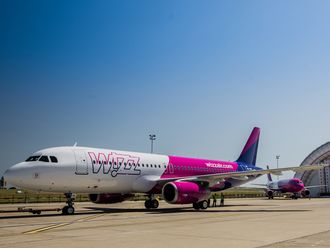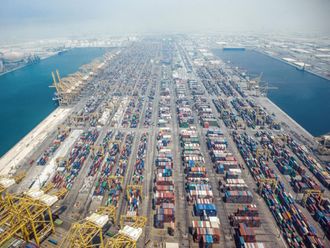Islamic finance has gained significant global exposure over the past decade and has evolved from an industry with a limited geographic reach to one that is now prevalent across key Islamic markets in the Middle East and Asia Pacific. Total global Islamic assets have witnessed phenomenal growth from $137 billion (Dh503.2 billion) in 1996 to $895 billion in 2010. Assuming the current trajectory, total industry assets are likely to surpass $1 trillion by 2012.
Islamic products and services for the corporate segment have also evolved over time. Basic account services have given way to the need for more complex solutions. Historically, a small range of Islamic financing, investment, cash management and treasury solutions limited the ability of a corporate treasury to mitigate foreign exchange, rate, funding, payment, commodity price and business protection risk in a Sharia-compliant manner.
Inevitably, this gave rise to a high degree of business risk. Over time, the Islamic finance industry has witnessed development of product suites to meet the corporate segments' financial needs. The evolution of Islamic finance can be broadly summarised with the development of basic personal and corporate account services, financing, trade and investment products over the past two decades. More recently, there has been considerable product development in the investment banking and takaful (Islamic insurance) areas. Islamic finance offerings today are on a par with their conventional equivalents.
Today, the Islamic fin-ance industry can cater to complex corporate requirements such as debt capital markets, equity and derivatives. These increasingly sophisticated products are normally structured using the Islamic financing building blocks: Murabaha, Mudaraba, Musharaka and Ijara.
Islamic finance has a full spectrum of well-developed financing solutions covering short-term simple finance through to medium and long-term complex, syndicated finance, project-based finance, export fin-ance, and Islamic debt and equity capital markets.
Working capital needs
Islamic products such as trade Murabaha (a sale with deferred payment) are widely used to finance purchase of goods and raw materials. Musharaka and commodity Murabaha (based on the sale of a specific commodity) are used to accommodate short-term working capital financing requirements to address liquidity mismatches between incoming funds (collections) and outgoing funds (payments) in a company's operation.
Islamic solutions for medium and long-term financing are becoming more mainstream in the industry, in the form of financing and sukuk (Islamic bonds).
Governments and companies are increasingly looking towards Islamic capital markets to meet their financing requirements. Figures vary for the total value of sukuk issuance in 2010; according to Dealogic, global sukuk issuance reached $23.3 billion in 2010, an 11 per cent decline from 2009 but up 23 per cent from 2008.
Besides sukuk, corporations have also been using Sharia-compliant financing solutions such as bilaterals, syndications, and project and export finance, which use Islamic structures such as Istithna (construction financing), Ijara (sale and leaseback), and Murabaha (buy and sale) to finance their medium to long-term strategic capital expenditures.
Risk management
The introduction in recent years of Islamic treasury hedging solutions has enabled institutions to hedge currency and exchange rate risks and to take advantage of yield enhancement through Islamic structured investment products.
The launch in March 2010 of the International Islamic Financial Market and the International Swaps and Derivatives Association Tahawwut (Hedging) Master Agreement was a major breakthrough in Islamic risk management, with the introduction of the first globally standardised framework document for privately negotiated Islamic hedging products.
The agreement will facilitate better treasury risk management tools to manage market risks.
Islamic finance also offers comprehensive transactional banking solutions covering trade, collections, payments, payroll and investment solutions. It also offers comprehensive trade and supply chain solutions covering trade-related financing and non-financing requirements of corporations.
These products have evolved over the years and can now help to meet more complex requirements such as pre-export financing, inventory financing/syndication, export credit and takaful.
The Islamic finance industry has developed over the past decade and has now become a credible alternative to conventional finance.
This is also the case for Islamic transactional banking and treasury management, with the availability of a comprehensive range of financing, treasury, liquidity management and protection solutions.
Yakub Bobat is Global Head of HSBC Amanah Commercial Banking, and Romy Buchari is Senior Manager, Global HSBC Amanah Commercial Banking, UAE.











